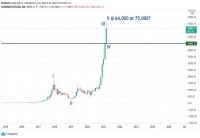|
Opalesque Industry Update - Family offices appetite for risk is set to increase over the year ahead with improved regulation of risker assets seen as the key reason, new global research from Ocorian, the specialist global provider of services to high-net-worth individuals and family offices, financial institutions, asset managers and corporates, shows. It found 82% of family office professionals including those working for multi-family offices believe their organisations' appetite for investment risk will increase with one in eight (12%) expecting a dramatic increase. Around 62% who expect a rise in investment risk appetite say increased regulation around riskier assets is the key reason for the increased risk tolerance while 55% said they believe inflation has peaked or will soon peak and that is creating an increased risk appetite. Around 47% point to increased transparency around riskier assets while 44% say they believe markets are set to recover. Ocorian's international study among more than 300 family office professionals collectively responsible for around $155 billion assets under management found almost all (99%) agree the switch to investing in alternative assets among family offices is a long-term trend. More than half (51%) say the Middle East is the jurisdiction most likely to see an increase in exposure to alternatives compared with 40% selecting the EU and 38% the UK. More than two-thirds (68%) believe family offices are most likely to use funds as their preferred structure compared with 66% selecting GPLP structures and 44% SPVs. Infrastructure and private debt are forecast to be the alternative asset classes seeing the biggest increases in allocations over the next two years. Around 26% questioned predict allocations to infrastructure to increase by 50% or more while 23% predict the same level of increase in allocations to private debt. The recent strong performance of alternative asset classes is seen as the key attraction for family offices ahead of the diversification benefits and greater transparency around the asset classes. Their ability to provide income, increased choice in the sector and their inflation proofing qualities are also attractive. Annerien Hurter, Global Head of Private Client at Ocorian, commented: "Family offices' appetite for risk is increasing rapidly after many years when many were heavily focused on cash and took a very cautious approach to investing. "The long-term trend of family offices increasing their exposure to alternative asset classes is certainly a factor in the growing appetite for risk and it is clear that improvements in regulation around riskier assets is proving popular with family offices. It remains essential for advisors and service providers alike to deeply understand the unique risk appetite and governance needs of each family, ensuring transparency and trust in every decision." Mark Spiers, Partner, Bovill Newgate, added: "Regulation is playing an increasingly critical role in shaping the investment strategies of family offices. The findings presented in Ocorian's survey highlight how improvements in the regulatory landscape, particularly around riskier assets, are enabling family offices to explore new opportunities while still ensuring robust governance frameworks. "It's encouraging to see that family offices are becoming more comfortable with increased risk, particularly in alternative asset classes such as private debt and infrastructure, as they recognise the potential benefits of diversification and enhanced transparency. As regulatory oversight continues to evolve, it's essential that family offices work closely with their advisors to navigate this complex environment and ensure that all investment decisions are aligned with both their long-term objectives and regulatory obligations." |
Industry Updates
Family offices increase their appetite for risk
Thursday, November 21, 2024
|
|





 RSS
RSS








